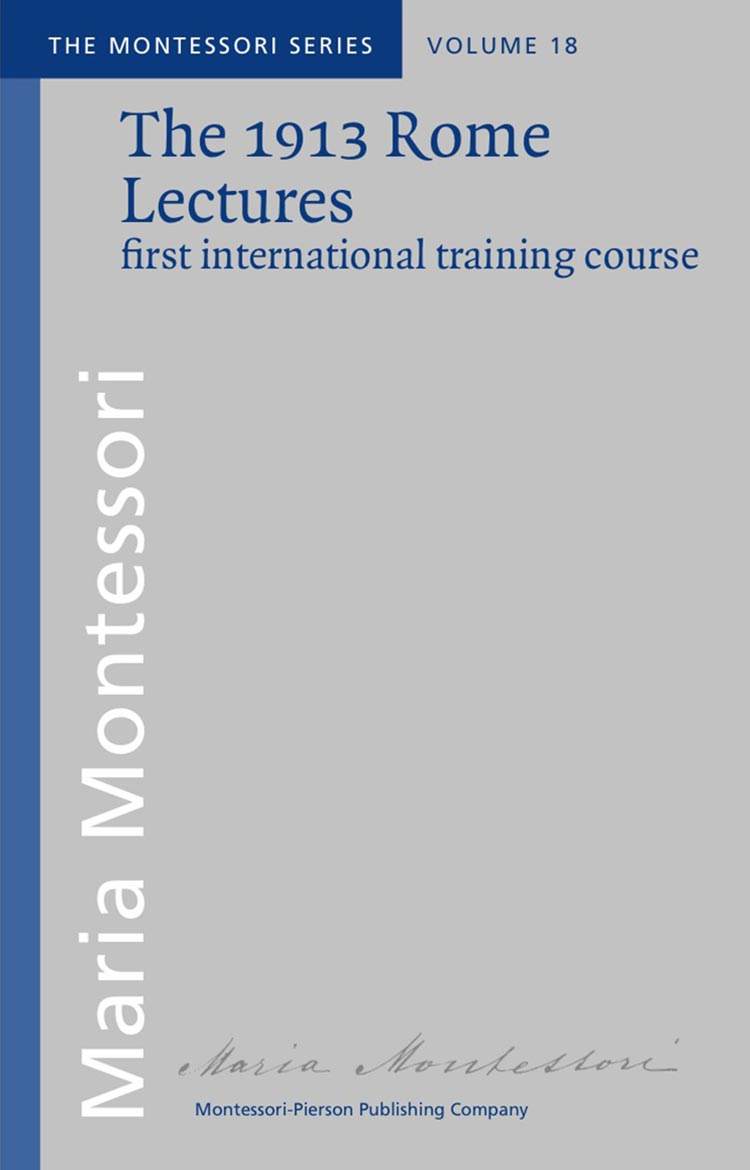The 1913 Rome Lectures
Maria Montessori organised the 1913 training course in Rome in response to many requests, from all over the world, but particularly the United States. It is the first course that was especially devised to provide international students to benefit from a bilingual curriculum. Whilst Montessori obviously delivered her lectures in Italian, simultaneous English translation was offered by two students. The lectures on this 1913 course chart Maria Montessori’s development as a thinker on human development. They show the depth of her background as a doctor of medicine, anthropologist, philosopher and pedagogue— giving an enthralling insight into how she was influenced by her time, where she adopted new and traditional ideas as an inspiration and where she went “against the grain”.
Selected Quotes from The 1913 Rome Lectures
The 1913 Rome Lectures, p. 152

